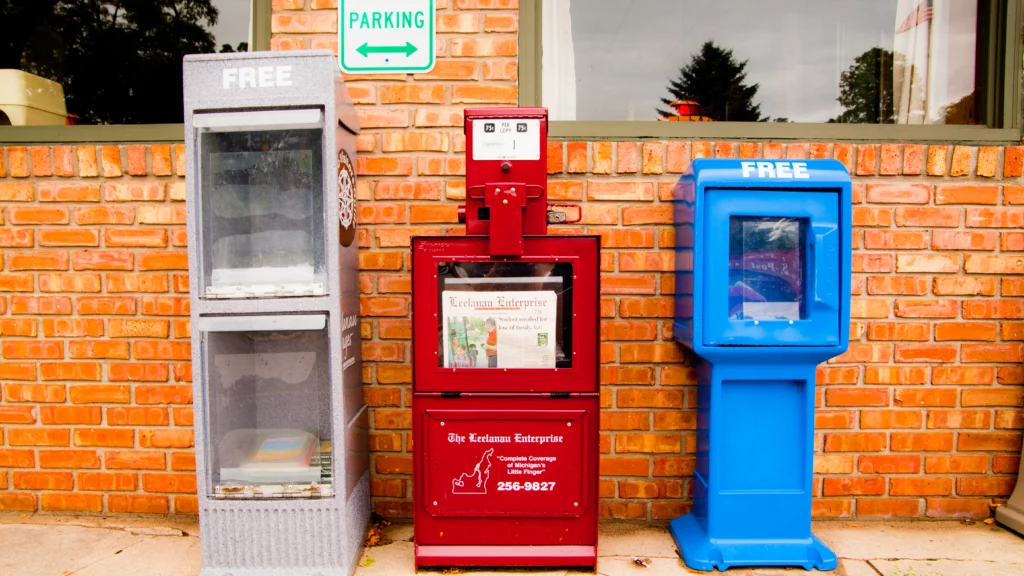Science is increasingly shaping our lives. But who gets to decide where the journey takes us? In this interview, science communication researcher Sarah R. Davies talks about how democratic processes can shape research.
Why scientific citizenship is key to democracy
This article is also available in German.
At the “Wisskomm Connected” conference, we heard the rather controversial statement by Elisabeth Hoffman that she sees no immediate correlation between democracy and science communication. How would you say that science communication promotes democracy?

I think that science communication, like other public and collective activities, helps build particular kinds of societies, whether or not we as communicators recognise that. On the one hand, science communication can promote democracy by making scientific knowledge accessible to public audiences, enabling citizens to engage in informed discussions, and ensuring broad participation in decision-making processes. On the other hand, some science communication can certainly contribute to promoting other forms of society – such as technocracy, where decisions would be made by experts.
In a democracy, it’s essential that people have the tools to critically engage with the issues that affect their lives, and many science communicators are committed to helping realise this. In recent years, science communication researchers and practitioners have sought to ensure that science and technology are subject to democratic input.
For instance, public participation in processes like citizens’ juries allows non-scientists to help set research priorities and influence science policy. This not only makes science more accountable to societal needs, but also benefits researchers, who gain a clearer sense of which directions are most valuable or relevant to the public. In this way, science communication can foster a two-way relationship. It empowers citizens with the knowledge they need to participate, while also ensuring that scientific research and technological developments align more closely with public interests.
What is the role of citizens in the democratization of science?
The concept of “scientific citizenship” has been in circulation for some time, and has been discussed by scholars such as Alan Irwin and Niels Mejlgaard. As I understand it, the term points to the way in which we now live in societies where science, technology, and innovation are central. If we are citizens in such societies, then we are simultaneously scientific citizens. We have a responsibility as citizens to participate in discussions about scientific issues, just as we do about other aspects of society.
In one of your book chapters you introduce additional formats of democratic innovation – for example the consensus conference and scenario methods. Should science communication incorporate more deliberative practices?
It depends on the communicator, the project and the needs. Formalised processes are valuable when a policy outcome is at stake, as it’s frustrating for participants if their input is not taken into account. In areas such as science policy or funding decisions, structured deliberation can be helpful, and there is now a vast array of different formats for bringing this about.
But in more informal science communication, there’s still room for democratic engagement even without formal processes. The focus is on giving people space to express their views, to learn from researchers, and to become better equipped as citizens to engage in public debate.
In Germany, there has been a proliferation of participatory formats such as citizens’ assemblies on issues such as climate change and artificial intelligence. What does it take to successfully execute these formats?
These processes must be conducted in good faith. There has to be a commitment from those with decision-making power to really listen to the results. If policymakers say “oh, we’re going to have a citizens’ assembly”, but have no real intention of taking the results into account, then it’s just for show, and that has been disastrous for trust in political processes.
What are the challenges of deliberative formats like these?
Some attempts, particularly in the UK in the 2000s, sought to engage people with emerging technologies such as nanotechnology or synthetic biology. These efforts were well-intentioned, but many organisers and participants struggled to understand the relevance of these quite abstract fields to their everyday lives. If we are primarily interested in promoting democracy, it is important to start with the issues and concerns that people already have in their lives, rather than imposing specific topics.
Working with science communicators, especially those working with marginalised communities, I’ve seen that many have more pressing concerns than, say, participating in a debate about synthetic biology. It can feel strange that there’s funding to tell deprived communities about synthetic biology, for example, but not to address the structural changes they need to improve their lives.
Should all research be driven by citizens’ priorities?
I don’t think so. I don’t think every research project should be subject to a citizens’ jury – it’s not useful and most people wouldn’t be interested. Formalised public participation is usually more about setting general directions and priorities. In some cases, and especially when research is controversial or has a major impact on people’s lives, it makes sense to involve citizens in the decision-making process.
For example, digital technologies have been shaped almost entirely by industry, with complex and not always positive consequences. So it is worth considering how broad, inclusive public deliberation could have influenced the development of these technologies and their role in society.
Most public deliberation processes are time-consuming and expensive. Are digital technologies the answer?
There have been experiments with using online spaces for deliberation – transforming consensus conference-style events into online formats. As far as I know, though, they have faded from view a little bit, in part because face-to-face engagement, developing trust, and building interpersonal relationships seem to be really important for having good-faith conversations.
Of course, more quantitative approaches such as voting or deliberative polling can definitely be done online. But the kind of deliberation that’s framed as a space for mutual learning – unfortunately I think that’s still time-consuming, because it needs to be.
How should science communication strategies evolve in response to the growing number of crises such as climate change and pandemics?
Many people would argue that in the context of crises like the climate emergency, we don’t have time for deliberation. The situation is urgent and we need to persuade people to act in a sustainable way. In these cases, we’re essentially advocating for partial technocracy. This is what happened during the pandemic, when decisions had to be made quickly and politicians delegated control to scientific experts.
But others would say that urgency doesn’t negate the need for democracy and deliberation, and that incorporating citizen feedback alongside scientific expertise helps us make better decisions. For example, during the pandemic, it might have been helpful to engage with different communities to understand the impact and concerns around the closures and regulations. This could have been incorporated into decision-making alongside the science.
How can we, as a community, respond to the rise of “science-related populism” and anti-science rhetoric?
We know from decades of research into public perceptions of science that scientific issues themselves generally don’t cause controversy – it’s how they are linked to, or represent, other concerns.
So when we see resistance to science, such as vaccine hesitancy, it’s often linked to broader issues. For example, studies in the US show that vaccine hesitancy can be linked to negative experiences with the health care system. This is particularly true in marginalised communities. These groups have historically been mistreated by healthcare institutions, so they have good reason for being hesitant to take their advice.
So when we encounter movements that appear to be anti-science, the central question is: why is this happening? What are concerns about science linked to or caused by? What’s at stake for them? We need to unpack these issues and understand how science and technology are linked to broader concerns. I think it’s about starting where people are, understanding their concerns and finding ways to address them.
Is it possible to maintain democratic ideals of open dialogue when dealing with people who spread misinformation or conspiracy theories?
We have to be really careful not to demonize certain groups. Of course we may disagree with people’s choices, their politics or how they respond to science and technology.
But to write people off or assume they’re stupid – that’s too easy. It’s easy to say people are wrong or misled. But as a social researcher, I think it’s important to engage with what’s happening and understand why these concerns arise and are expressed in certain ways.
Maybe I’m too optimistic, but I still think it’s worth trying to understand people’s logic and why they take certain positions. I still believe in the power of deliberation and discussion.






